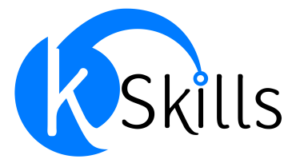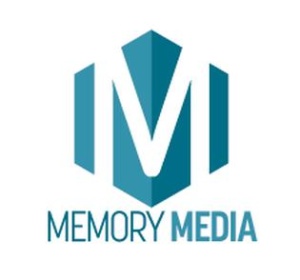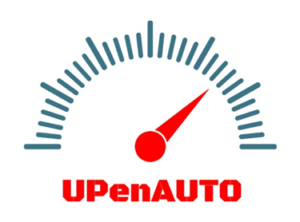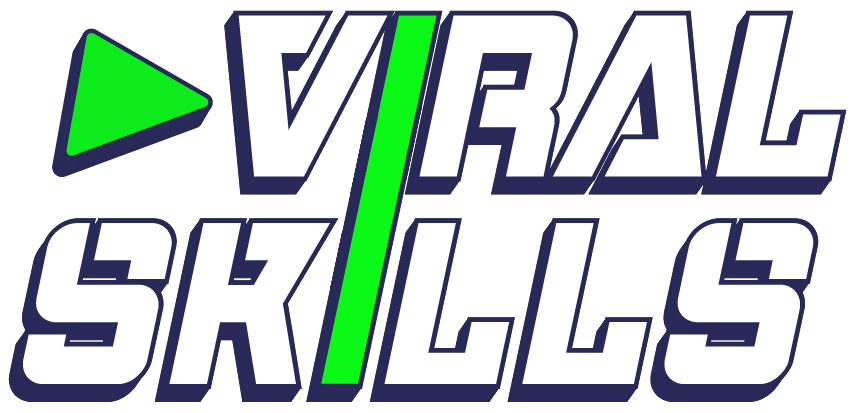Erasmus +
MUGIKORTASUNAK
ERASMUS +
Etengabeko Ikaskuntzako Programaren barruan, Erasmus programa sektorialak Goi Mailako Hezkuntzako parte-hartzaile guztien irakaskuntza- eta ikaskuntza-beharrei erantzuten die. Ildo horretan, Goi eta Erdi Mailako Heziketa Zikloak egiten dituzten ikasle guztiek parte har dezakete Erasmus Programan, praktiketarako ikasleen mugikortasun-jardueraren bidez.
Proposamen horrek prestigioa eta aintzatespena ematen dio Lanbide Heziketari, eta, aldi berean, Lanbide Heziketatik datozen ikasleei aintzatespen akademiko handiagoa ematen die. Enpresetan praktikak egiteko mugikortasun-programa horretan parte hartzeko, Goi Mailako Irakaskuntzako Zentroek Erasmus Karta “zabaldua” eduki behar dute. Gutun hori Europako Batzordeak eman behar du, eta bertan ezartzen dira Goi Mailako Irakaskuntzako Zentroek errespetatu behar dituzten oinarrizko printzipioak eta gutxieneko baldintzak.
Gutun honek Erasmus politikari buruzko adierazpen bat jasotzen du, eta bertan, zentroak Gutunaren baldintzak eta printzipioak betetzeko egin nahi dituen neurriak eta ekintzak jasotzen dira.
IKASLEEN MUGIKORTASUNA PRAKTIKETARAKO
Erdi eta Goi mailako zikloetako ikasleen mugikortasuna da, beste estatu kide bateko enpresa batean denboraldi batez egoteko helburua duena, eta gaitasun espezifikoak eskuratzeko eta herrialdearen ingurune ekonomikoa eta soziala ulertzeko balioko die, lan-esperientzia eskuratzearekin batera.
EZAUGARRIAK
- Jatorrizko zentroak erabateko aintzatespena eman behar dio atzerriko praktikaldiari (LP).
- Praktikaldia praktika-kontratu batek estali behar du. Kontratu horrek ikaslearen iraupena, finantzaketa, ordainketa-baldintzak eta banku-datuak arautzen ditu, jatorrizko zentroak eta ikasleak sinatuta. Honako hauek jaso behar ditu:
- Baldintza orokorrak
- Prestakuntza-akordio bat, ikasleak enpresan garatu beharko duen prestakuntza-programa eta kalitate-konpromisoa jasoko dituena, non hiru alderdiek kalitate-printzipioak errespetatzeko konpromisoa hartzen duten.
- Ikasleari Erasmus Ikaslearen Gutuna emango zaio, Erasmus mugikortasunean parte hartzen duen ikaslearen eskubideak eta betebeharrak jasotzen dituena.
- Ikasleak amaierako txostena egin behar du, inprimaki ofiziala erabiliz, praktikak amaitu eta hurrengo 30 egunetan.
- Harrera-enpresak egonaldi-ziurtagiria emango dio ikasleari, praktikak egin direla eta praktiken iraupena egiaztatzeko.
- Bekak zuzenean ordainduko zaizkio ikasleari, eta funtsen transferentzia bi fasetan egingo da: lehenengo fasean% 80 ordainduko da, eta bigarren fasean, berriz, ikasleak amaierako txostena eta eskatzen zaion dokumentazioa aurkeztu eta OAPEEk gainerako funtsak bidaltzen dituenean ordainduko da.
- Ikasleak ordainduko ditu garraio-, ostatu- eta mantenu-gastu guztiak. Kontuan izan behar da Erasmus Erkidegoko bekek ez dituztela estaltzen harrera-herrialdean sortzen diren gastu guztiak. Gastu horietan laguntzeko laguntza dira.
Erasmus programaren bidez praktikak kanpoan egin nahi duten ikasleek TUTOREEKIN jarri behar dute harremanetan.
Bekak eskatzeko epea: Iraila-Urria.
Programan parte hartzeko eskabide guztiak jaso ondoren, hautagaiak honako irizpide hauek kontuan hartuta aukeratuko dira:
1. Hizkuntza-maila
2. Espediente akademikoa
3. Programan parte hartzeko interesa eta motibazioa
4. Irakasle-taldearen eta programaren arduradunen txostena/balorazioa
5. Hartutako konpromisoa onartzeko erabakia
Onuradunak lanbide-arloen artean hautatuko dira, kontuan hartuta ostatu hartzeko gaitasuna, harrera-herrialde bakoitzean lortutako enpresak eta OAPEEk emandako plaza-kopurua.
SOMORROSTRO IKASTETXEKO HAUTATZEKO IRIZPIDEAK
Ikastetxearen plan estrategikoaren esparruan, eta Europar Batasuneko Hezkuntza eta Prestakuntza 2020 estrategiarekin bat etorriz, hainbat proiektu nazional eta europear egiten ari dira, irakaskuntzaren kalitatea hobetzeko eta gure jardueren nazioartekotzea sustatzeko.
Nazioartekotzearen aldeko apustuan, zentroak hainbat programatan hartzen du parte:
- ERASMUS +: Ereduzko jardunbideen trukaketa, hezkuntza proiektuen garapena Europako ikastetxeekin eta atzerrian praktikak egiteko aldiak gure ikasleentzat (ERASMUS KARTA).
- Mugaz gaindiko lankidetza-programak, prestakuntzaren eta enpleguaren arloko kohesioa hobetzeko.
- Nazioko eta eskualdeko programak.
- Nazioarteko beste programa batzuk: Horizon Europe, LIFE+, EGF, etab.
Atal honetan, ikastetxeak zer proiektutan parte hartzen duen erakutsi nahi dizuegu:
BERRIKUNTZA
K-SKILLS competencias para movilidad de alumnos
OBJETIVOS
Identificar y desarrollar competencias horizontales para los alumnos de FP de grado medio que contribuyan a fomentar y mejorar sus experiencias internacionales, especialmente las prácticas en empresas en el extranjero.
Este proyecto está financiado por el programa Erasmus+ de la Unión Europea.
SOCIOS
- Centro Formación Somorrostro, líder del proyectos
- Oblomov, S.L.
- Akademie Überlingen Verwaltungs GmbH (Alemania)
- BEST Institut GmbH (Austria)
- South West College (Reino Unido)
- Euroform RFS (Italia)
KSkills project –Key Skills for Mobility- aims at increasing and improving the mobility of Vocational Education and Training (VET) students by developing a more comprehensive training on key and transversal competencies in order to increase their access and permanence in the labor market.
The project involves different VET organisations from the EU:
– Centro de Formación Somorrostro- coordinator (Spain)
– Oblomov, S.L.-Campus2Business (Spain)
– Akademie Überlingen Verwaltungs GmbH (Germany)
– BEST Institut GmbH (Austria)
– South West College (United Kingdom)
– Euroform RFS (Italy)
During the project, partners are developing a diagnosis of existing transversal competencies of VET students and a study on mobility in order to develop a specific training programme. In addition a guide will help to implement it in all EU countries. The specific objectives are:
1. To establish a common frame of reference to the various models of European Vocational Training on key and transversal skills for mobility.
2. To develop training programmes on key and transversal competencies for mobility aimed at VET students.
3. To test and measure the quality and relevance of the training programmes to the specific needs of students in VET.
4. To raise awareness among young students of VET and their family environments on the benefits of mobility.
5. To facilitate social integration in a multicultural environment of VET students and enhance their employability profile and future employment opportunities.
6. To produce an impact on other students, their environments and VET systems.
A pilot mobility experience with students will be undertaken in 2016 in order to evaluate the results and impact of the training programme.
The project is co-funded by the Erasmus+ programme of the European Union (no. 2014-1-ES01-KA202-004680).
For more information please check the website:
http://www.kskillsmobility.eu/
MEMORY MEDIA
OBJETIVOS
Memory Media explores health and social care issues in a consortium of 5 partners:
- Dundee and Angus College and (UK)
- Forth Valley College (UK)
- Centro de Formación Somorrostro (Spain)
- FoU Centrum, Linkopings Kommun (Sweden)
- Gannan Medical University, (China)
This international partnership enhances the attractiveness of HE courses in Europe by looking outside of Europe to one of the strongest economies in the world and how they are assigning resources to the care of older people. Creating an opportunity for convergence of 2 different cultural approaches (East meeting West) will bring benefits to Europe’s HE curricula.
The project undertakes some comparative research and creates new practical and theory teaching materials to teach students in HEIs about how East and Western approaches have different ways of working. The project also uses a range of techniques from digital media and Chinese culture to create stimulating ‘memory boxes’ to be used in health and social care and community settings. Outputs included a project website, research findings, teaching and learning material and a peer teaching course plan.
Memory Media have deep and long lasting impacts. Those directly involved experiences positive impacts personally and professionally (e.g. increased motivation & satisfaction in their work, development of intercultural skills) and experiences a real sense of achievement. They have a more positive attitude towards the EU which they share with others and experience a better understanding of skills levels in other EU countries. The project brings benefits primarily to students and teachers but also health and social care professionals who also gain valuable new resources that can be used in practical care settings.
Project Number: 2016-1-UK01-KA203-024601
MÁS INFORMACIÓN
https://www.mmdementia.com/
DIVINA EDU Project:
The European societies are increasingly diverse in terms of social, cultural and linguistic background. Adult education reflects this diversity, posing challenges to all included: learners, trainers, and administrative staff. Coping successfully with diversity is a demanding task, as a clash of cultures and values is usually involved. The lack of awareness and sensitization on the issue causes often discrimination that can easily lead to harassment, adult bullying, or other forms of aggression. However, the staff of adult education entities (both administrative and trainers) is required to provide high-quality, discrimination-free services that will empower the individual learner to make the most out of his/her potential. It is to address this challenge that the project Diversity in Adult Education (DivInA Edu) is proposed, by introducing effective strategies to cope with diversity in adult education
More specifically, the project pursues the following objectives:
- To raise awareness and provide information on diversity issues in adult education
- To promote the personal development of adult educators and other stakeholders in adult education
- To promote the creation of a safe and equitable learning environment in adult education that will facilitate individuals to take full advantage of the learning opportunities offered to them
- To prevent adult bullying and other forms of discrimination in education, thus promoting equity and social cohesion
- To build on accumulated experience and disseminate good practices, in order to further advance diversity management in adult education
The project foresees the following activities with the corresponding outcomes:
- Research on diversity issues, bullying, and coping strategies in adult education. Bibliography research and field surveys addressing the staff of adult education entities (administrative, trainers) will be combined for the identification of local needs and best practices.
- Development of a training methodology and a course outline on diversity management in adult education. Corresponding to the needs identified through research, the desired learning outcomes of the training course will be defined. According to these learning outcomes a course on diversity management in adult education will be designed, weighted in line with the European Credit System for Vocational Education & Training (ECVET).
- Following that, new training modules for trainers and administrative staff will be developed and related modules produced from a previous European project will be adapted. Training material and an assessment methodology will be also developed.
- A training platform will be developed as a means to deliver the training and to facilitate networking and support of the learners. The platform will be based on a peer learning platform developed in the context of another European project, which has already been tested and validated by hundreds of users. Pilot usage of the platform will provide input for its evaluation and improvement.
- A series of dissemination activities and multiplier events will make the project products known and enable all interested parties to benefit from them. Workshops will introduce the staff of adult education providers to the training platform and the new training course. An estimated total of 300 people will participate in the events organized by the project.
The methodological approach adopted in the project is based on the following principles: thorough needs identification; goal orientation; building on good practices and previous projects; implementing European accreditation tools; integrating ICT in learning; pilot usage and evaluation.
The DIVINA EDU project will challenge existing misconceptions and prejudices in the provision of training within the administrative as well as the managerial part of the training process. It will contribute to the creation of an organizational culture in the educational community where people belonging to different vulnerable groups feel confident about equal treatment. It will also contribute to the promotion of good relations between different groups, defusing racial tensions and hostility, promoting the benefits of equal rights and opportunities for all, building understanding through working together. Therefore, the project activities are expected to contribute to a social anti-bullying behavior in areas where often social tension arises. In the long term, the project envisages to have an impact on public opinion, influencing the level of human rights protection and human rights ethics in the field of discrimination.
Project Number: 2016-1-ES01-KA204-025537
UPenAUTO
OBJETIVOS
Este proyecto pretende analizar y trabajar las competencias que sector europeo del automóvil está demandando en sus trabajadores, centrándose sobre todo en los perfiles de Ingenieros de Productos, Ingenieros de Procesos e Ingenieros de Desarrollo.
El consorcio del proyecto desarrollará:
- Una matriz de competencias/habilidades para la especialización de los perfiles profesionales en el sector de la automoción
- Metodología e itinerarios de formación que respondan a los resultados obtenidos en la matriz anterior
- Un curso de formación práctica basado en procesos reales del sector del automóvil
- Una guía para poder repetir este proceso de búsqueda de competencias/habilidades demandadas en otros sectores (centrándose en el sistema de formación Dual)
Destinatarios:
Centros de FP y otras entidades de formación para el empleo
Licenciados o técnicos de grado superior en ingeniería, física, automoción, que deseen cursar una especialización para mejorar su conocimiento y habilidades.
Empleados de las empresas de automoción, Centro de R+D, tutores a cargo de estudiantes en prácticas relacionadas al sector de la automoción, empleados del sector responsables de estudiantes en prácticas, etc.
Otros grupos de interés como agencias de desarrollo local, empresas del sector de la automoción, asociaciones de empresas, inversores, fundaciones relacionadas con la automoción…
.
SOCIOS
Este proyecto es una asociación estratégica cofinanciada por el programa Erasmus+ en el que participan las siguientes entidades:
- IMH – Fundación para la Formación Técnica en Máquina –Herramienta (España)
- GTI – Gestamp Technology Institute (España)
- Gestamp Louny S.R.O (Rep. Checa)
- UPB-CAMIS UNIVERSITATEA POLITEHNICA DIN BUCURESTI (Rumanía)
- Centro de Formación Somorrostro (España)
Más información sobre el proyecto en la web UPenAUTO
Nº de subvención: 2017-1- ES01-KA203- 038588
This project has been funded with support from the European Commission. This webpage and the publications it contains reflect the views only of the author, and the Commission cannot be held responsible for any use which may be made of the information contained therein.
RESTART 4.0 Project:
The technological development and the growing cultural maturity towards the use of smart devices has changed the way we think, plan, implement production and support processes in the industrial sector. The introduction of digital models and technological solutions has led to the rethink the structure of industrial products, the technologies used to create these products as well as the whole supply chain. The digital evolution makes changes to the industrial HR organization, transforming both roles AND competences of most professional profiles employed.
The evolution of European industries is supported by digital solutions and is depicted in what is so-called “Industry 4.0”. A survey conducted by the European Social Fund on the monitoring of professional needs of industry reveals a mismatch between demand and supply of labour through the lens of the skills required. Businesses demand workers specialized in digital skills tailored for the industrial sector. It is therefore necessary to introduce advanced training programs that are able to combine specialized sector expertise with a set of e-leadership and specific digital skills.
Industry has been working closely with schools, universities, employment agencies and NGOs to set up innovative programmes to supply people with key skills necessary for the digital transformation. Nevertheless, VET education is yet to develop a link with the industrial sector. Additional specific actions to be deployed – as mentioned in “Recommendations from DIGITALEUROPE – Boosting the skills for the future of digital Europe” (2016) are:
- Encourage links between digital demand and digital supply to increase digital employment (and reduce the skills gap);
- Bridge the gap between digital job opportunities, skills of people seeking digital employment, and digital training opportunities (through public and private training organisations)
The main objectives of the RESTART 4.0 project are:
- Promote VET initiatives on digital skills targeting self-employed, entrepreneurs, workers, through mixed partnerships involving both training providers and industries, chambers of commerce, trade associations
- Design training courses to update and requalify workers of the industrial sector, focusing on the uptake of digital skills that are necessary for the development of Industries 4.0
- Provide e-leadership skills to students, workers and managers that will lead to better employment and career opportunities and make companies more competitive and innovative
- Foster the recognition across all EU countries of ICT and e-leadership skills applied to the traditional industrial sector through the use of ECVET
Project Number: 2017-1-ES01-KA202-038446
VIRALSKILLS
Tackling the digital revolution in adult learning: Virtual Reality Learning in adult learning and education
The objective of the Project is to create training for adult trainers to gain technical and transversal skills needed to implement the VR&AR technologies in the classroom.
Aims and outcomes:
The main aims and activities of the project will be:
- Implementation of an investigative research about available and emerging technologies (hardware and software) and its analysis for the adult learning process as well the necessary competences needed for future adult educators.
- Development of a web-based compendium about available hardware and software, their potential for learning, pros and cons, etc.
- Development of a training program for adult managers and educators to raise awareness and gain the necessary knowhow and competences
- General quality improvement and professionalization of adult educators, trainers or teachers related to the immersion of VR within adult education.
- Boosting the use of digital resources within adult learning all over Europe
Partners:
– Auxilium (Austria)
– Fachhochschule des Mittelstandes (fhm) gmbh – University of Applied Science (Germany) -Meath community rural and social development partnership limited (Ireland
– Universitaet Graz (Austria) ,
– Co&So -Consorzio per la Cooperazione e la Solidarieta’-Consorzio di Cooperative Sociali-Societa’ Sooperattiva Sociale (Italia) ,
– Centre for Advancement of Research and Development in Educational Eechnology LTD-Cardet (Cyprus)
– Centro de Formación Somorrostro
Microgrids
El objetivo general es crear nuevos contenidos formativos relacionados con las micro-redes, este nuevo espectro energético basado en energías renovables a nivel global.
Socios que participan:
-Deltion College (Países Bajos)
-South West College (Reino Unido)
– CIFP Usurbil LHII (España)
-Centro de Formación Somorrostro (España)
Webgunea: http://microgridserasmusproject.eu/
Play your skills
Este proyecto pretende crear una aplicación para que las personas poco cualificadas trabajen en habilidades básicas como la aritmética, la alfabetización y otras habilidades sociales.
Entidades socias del proyecto:
– JUGEND AM WERK STEIERMARK (Austria)
– Co&So (Italia)
– Future In Perspective Limited (Irlanda)
– E.N.T.E.R. GMBH (Austria)
La web del proyecto ya está disponble! Para obtener más información: https://www.playyourskills.eu/
CASE
La finalidad es desarrollar y probar un nuevo modelo y enfoque de las competencias del personal sanitario y de asistencia social que trabaja con personas mayores con demencia utilizando tecnologías y metodologías digitales innovadoras.
Esta es la plataforma donde encontrar el material: https://dementialearning.eu/
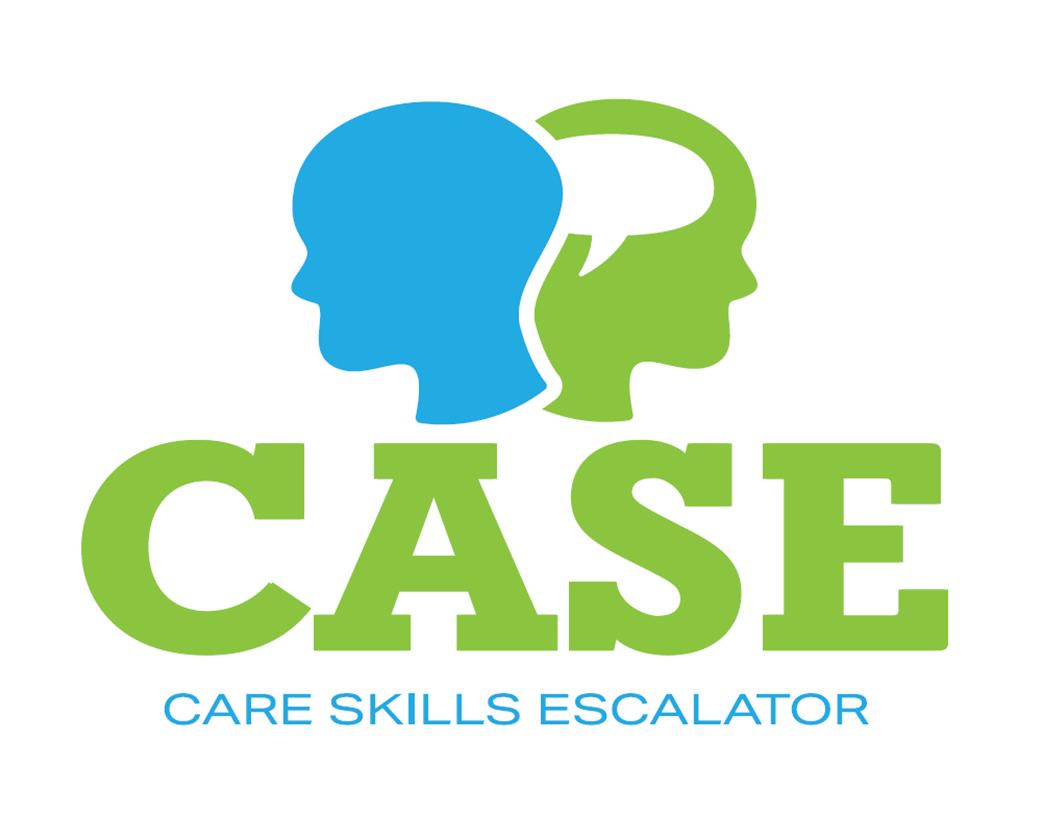
Socios del proyecto:
– R&D Centre Linkoping (Suecia)
– D&A College (Reino Unido)
– Zemgale Planning Region (Letonia)
– CCD llfov (Rumania)
21st Century Students
El proyecto ofrecerá a los alumnos, así como a sus educadores, diferentes perspectivas y enfoques para encontrar sus intereses y puntos fuertes en la educación STEM, a la vez que les proporcionará un mejor conocimiento práctico del diseño y la fabricación digital en línea con las necesidades de la industria. El proyecto tiene como objetivo hacer frente a las carencias y desajustes de competencias mediante la creación y puesta en marcha de herramientas de aprendizaje innovadoras que satisfagan mejor las necesidades de aprendizaje de los estudiantes, al tiempo que sean relevantes para nuestra sociedad cada vez más tecnológica.
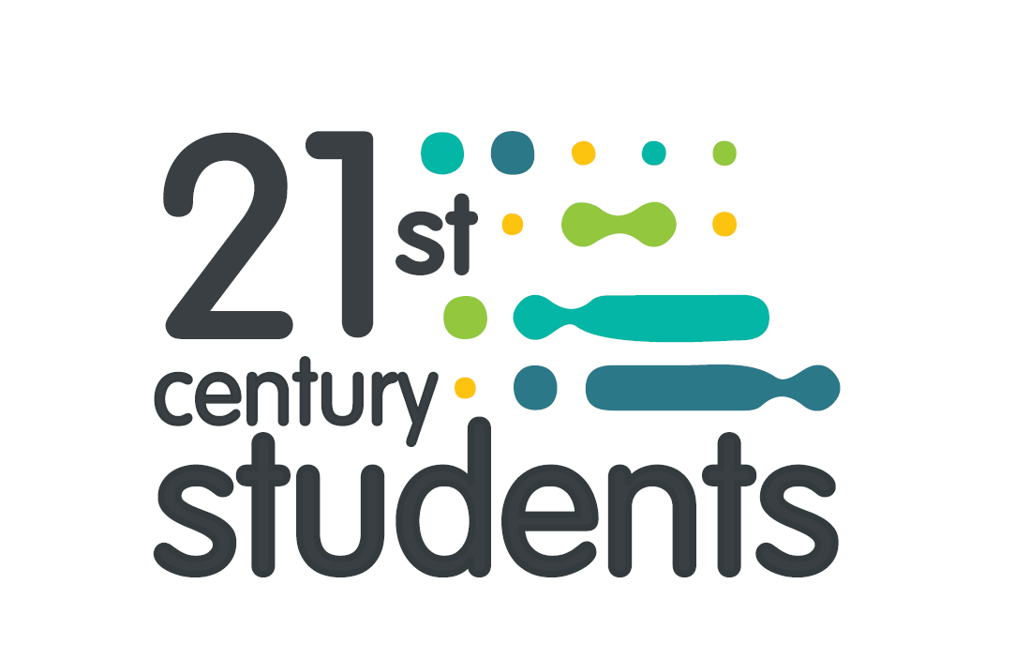
Socios:
South West College (UK)
The International Hellenic University (GR)
Ludor Engineering (RO)
Platon schools (GR)
FabLab, NGO (CR)
Somorrostro (SP)
The European Institute for Innovation – Technology (GE)
VRinVET
In this project, the features of Virtual reality (VR) in Altspace and GLUE -environments will be piloted for vocational education and training, and new learning spaces for encounters, learning, teaching, co-creation and sharing will be created.
The results will be inspiring VR learning environments and pedagogical models for use of VR in the pilot fields of mathematics, languages and communications, and electricity.
Tutorials will be arranged for beginners and rookies, to facilitate more and more staff and students getting familiar with Altspace, and participating in the pilots, expert lectures and activities.
Tutorials will be arranged also for the general public, for whom we will offer best practices of blended and online learning, brought on by the Covid.
Project web: https://www.vrinvet.eu/
Project partners:
Keuda Group Vocational education and training, coordinator, Finland
Fondazione Luigi Clerici, Italy
TEC Technical Education Copenhagen, Denmark
Noordepoort College, the Netherlands
Somorrostro, Basque country
GLUE (support partner)
OLA
Es un proyecto europeo de 2 años de duración (2021-2023) coordinado por el CNR-IRPPS que, tras la crisis generada por las pandemias COVID-19, pretende dar un impulso a los “recursos educativos abiertos” y a las “prácticas educativas abiertas”, como una oportunidad para reducir la brecha digital en el contexto educativo europeo, construyendo una sociedad más inclusiva.
Los recursos educativos abiertos – pensados como recursos educativos digitales gratuitos, desarrollados de forma colaborativa por redes de profesores con otros actores sociales – ya existen, pero son todavía una realidad fragmentada, no suficientemente extendida y valorada a nivel institucional. El proyecto OLA pretende promover su desarrollo y difusión mediante: Cursos MOOC para profesores; creación de directrices sobre recursos educativos abiertos para profesores y editores; construcción participativa de una plataforma online de acceso abierto utilizable por los profesores para desarrollar y difundir escenarios educativos multimedia.
Al final del proyecto, se desarrollarán 80 escenarios interdisciplinarios relacionados con las asignaturas STEAM (Ciencia, Tecnología, Ingeniería, Arte, Matemáticas), 50 de los cuales se probarán en los 5 países asociados: Chipre, Grecia, Italia, Rumanía y España.
Una cuestión central y transversal al proyecto es prestar atención al reconocimiento de los estereotipos -empezando por el de género, pero sin limitarse a él- y de los valores que transmiten implícitamente los libros de texto escolares y los recursos multimedia en línea, a fin de promover un concepto más amplio de “competencias digitales”, que incluya no sólo las competencias estrictamente tecnológicas, sino también la capacidad de utilizar las plataformas en línea y las fuentes de información de forma crítica y responsable, como premisa para ejercer una ciudadanía consciente e informada.
RESULTADOS: 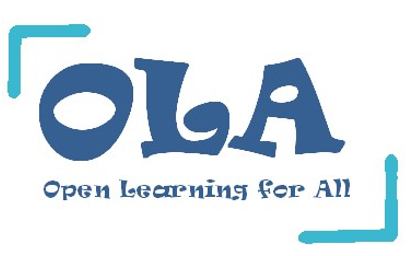
+OLA MOOCs: https://mooc.olaproject.eu/dashboard
+REPOSITORIO de escenarios : http://repository.include-erasmus.eu/jspui/
Socios:
- CNR-IRPPS Italia(coordinator)
- Istituto Comprensivo Carducci-King of Casoria Italia
- University of Cyprus Chipre
- National Technical University of Athens Grecia
- 1° Peiramatiko Gymnasio Athinas of Athens Grecia
- Scoala Gimnaziala Mircea Eliade of Craiova Rumania
- Centro de Formación Somorrostro.
Visita la web: https://www.facebook.com/OLAeuproject
Circular VET
El objetivo de este proyecto es el desarrollo de competencias para la transición hacia una economía circular en el sector metalmecánico.
EMAITZAK:
Creación de una base de datos de buenas prácticas de economía circular en el sector metalmecánico, programa de formación orientado a centros de FP, herramienta educacional para el cálculo de la huella de carbono, sistema de acreditación de las competencias en economía circular en el sector metalmecánico basado en microcredenciales.
Sozioak:
-HETEL (Spain)
-ECOLE – ENTI CONFINDUSTRIALI LOMBARDI PER L’EDUCATION – SOCIETA’ CONSORTILE A R.L. (Italy)
– Prios Kompetanse AS (Norway)
– IED – INSTITUTE OF ENTREPRENEURSHIP DEVELOPMENT (Greece)
– EUROPAISCHER VERBAND BERUFLICHER BILDUNGSTRAGER – EVBB (Germany)
A Micro-Survey Framework for Inclusion and Diversity in Vocational Education
EMAITZAK
Sozioak:
– MERCANTEC OVRIGE VIRKSOMHEDSFORMER (Denmark)
– Rakvere Ametikool (Estonia)
– StudentPulse A/S (Denmark)
-XARXA FORMACIÓ PROFESSIONAL (Spain)
– ROC Noorderpoort (Netherlands)
– COLEGIUL TEHNIC SAMUIL ISOPESCU SUCEAVA (Romania)
– Centro de Formación Somorrostro (Spain)















